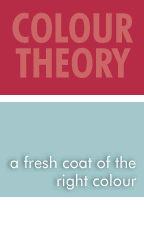Toxic Indoor Environments Require Advanced Human Habitat
Collage: Advanced Human Habitat: Surround Yourself with “AHH!”
Sick Building Syndrome (SBS), Attention Deficit Disorder (ADD), Nature Deficit Syndrome (NDS), Seasonal Anxiety Disorder (SAD), Greenhouse Gasses (GHGs), Volatile Organic Compounds (VOCs)… the problems associated with indoor space as-is (non-habitat) are numerous and toxic: physically and psychologically. The Antidote is Advanced Human Habitat (“AHH…”).
Image Credits: MS Office ClipArt: Person with house icon;
Metaphor of upset stick-person with a green face and bloated stomach;
Smiling stick-person resting in a lounge chair.
Image Credits: MS Office ClipArt: Person with house icon;
Metaphor of upset stick-person with a green face and bloated stomach;
Smiling stick-person resting in a lounge chair.
The best way to detoxify is to stop putting toxic things into the body and depend upon it's own mechanisms.Source: BrainyQuote
The above quotation is telling because it recommends avoiding unnatural toxic things in favour of natural healing mechanisms. Every organism in nature exists because of its habitat. Their habitat usually consists of an ecosystem in which they play a key role.
Only people and those creatures we identify as pests seem to thrive in non-habitats. But are we really thriving? On a species-level, global population of both human beings and associated vermin are exploding. But what about on an individual level? Consider this list of problems with non-habitats:
Top Problems with Toxic Indoor Environments (Non-Habitats):
- Sick Building Syndrome (SBS) – There are numerous toxicity and other health and wellness related issues related directly to buildings themselves—their design, build quality, materials, building code, standard practices, etc.—from respiratory problems to symptoms of the central nervous system.
- Attention Deficit Disorder (ADD) – We fill our lives with stress: deadlines, meetings, background noise, jarring scents, and audio / visual distractions of every kind. It’s no wonder that ADD and ADHD (Attention Deficit/Hyperactive Disorder) is on the rise in children, teens and adults. So much so, that it is becoming a societal “norm.”
- Nature Deficit Disorder (NDD) – A term coined by Richard Louv, NDD refers to his observational analysis that children and adults are suffering a host of behavioural problems as a direct result of spending less time outdoors.
- Seasonal Anxiety Disorder (SAD) – Commonly called “the winter blues” or “the January blah’s,” anyone living in northern climes knows the effects which long nights and little sunlight can have. With temperatures requiring us to stay indoors most of the time, the effects are compounded.
- Volatile Organic Compounds (VOCs) – It’s not just buildings we need to be concerned with. Many household items, from furniture and area rugs to toys and bedding, to air fresheners and cleaning agents contain compounds which break down over time, releasing noxious fumes and toxic particulates into the air we breathe. Offices and workplaces are often worse, with commercial-grade cleaners, toners, dividers, and other items containing manner of chemicals.
- Greenhouse Gasses (GHGs) – Unless we already live and work off-grid in a carbon-neutral building powered 100% by renewable sources of energy, complete with a sustainable lifestyle, then we are contributing to greenhouse gas emissions. The long-term socio-economic and psychological effects of this behaviour are incalculable. But if global warming is on your mind (and severe weather events is making it moreso for more people), inaction on this front can be stressful, guilt-inducing and more.
Advanced Human Habitat: Surround Yourself with “AHH”
PeapodLife creates Advanced Human Habitat (AHH) in direct response to the toxicity of contemporary human non-habitats (our so-called “living space”). Designed on an integrated platform of cutting edge Building EcoSystems & Technology, PeapodLife AHH mitigates and even reverses the dangers of non-habitats.
Advanced Human Habitats balance the demands of modern life with the fundamental needs of human nature. Naturally lit indoor/outdoor spaces harmonize technology and ecology; improve health, productivity and overall feelings of wellness, vitality and happiness. Advanced designs, materials and ecosystems prolong the life of buildings and promote a more sustainable future for all people.
This is PeapodLife’s Advanced Human Habitat Approach … our “AH-HA!” moment. Surround yourself with “AHH;” experience your own “AH-HA!” moments.
Attila Lendvai
VP of Strategic Development
Wo-Built Inc. - Innovative Design and Build
link:
wobuilt.com:blog: Health and Wellness through Indoor Garden Living Spaces
Be it in the home or at the workplace, PeapodLife strives to deliver a useable living space that supports people coping with the toxicity of modern day life.













